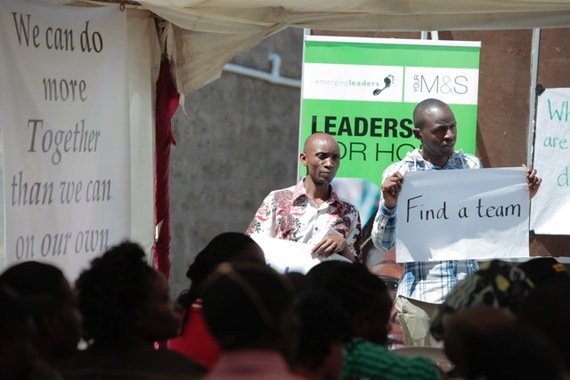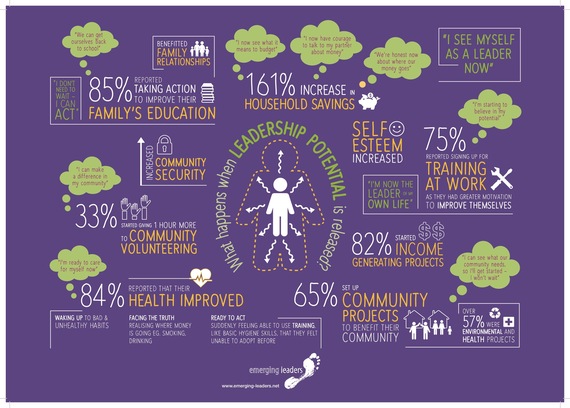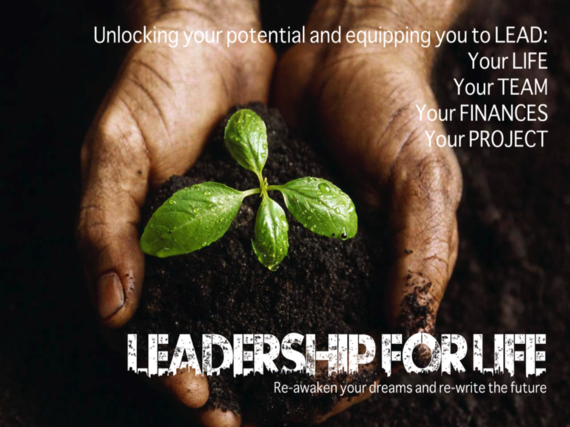In recent years there has been a drive to create a marriage between the world of international development (typically value driven, grassroots, non governmental, justice and equality focused) and the world of business (often seen as corporate, profit making, unjust, squeezing the ethics and the values to the minimum). Caricatures and bad history have made it an uneasy courtship. But the reality of the world, its challenges and its urgencies make it an important marriage to broker.
In 2012, 7 years on from its conception, Emerging Leaders faced a very difficult choice. 64% of Sub Saharan Africa is involved in agriculture and therefore one of the most effective routes to reaching vulnerable farmers and their communities with training is through the Agricultural Supply Chain. Should we at Emerging Leaders accept the opportunity to reach millions of people in some of the continent's most vulnerable communities by partnering with the corporate world? We took the risk. The risk gained the attention of Marks & Spencer and by the end of 2012 we had begun a gentle courtship towards a partnership. A partnership that has since enabled us to reach about 20,000 people we maybe would never have got to on our own, with a scaled up impact of about 400,000 people on the continent. A partnership that gave us scale, credibility and an opportunity to expand.
So, three years on, Emerging Leaders can celebrate an effective partnership. What are the key lessons we have learned from the NGO perspective about developing a good partnership?
1.It's a necessity and no longer and option. Sustainability is everyone's issue, economic justice is everyone's issue, youth employment is everyone's issue, security is everyone's issue, well-being is everyone's issue. There are no longer two agenda's but one. Marks & Spencer's strap line for its innovative Plan A strategy is 'doing the right thing'.
2.Both sides need to benefit. The difference between a philanthropist and a corporate partner is that the partner has their own needs, whether strategic, economic or sustainability or CSR agenda. An NGO has the need to fulfill its mission. A good partnership has to be one where both parties' needs are being met by the relationship. A one-sided deal won't survive.
3.It needs to be personal. The partnership has worked because we have been dealing with people, not some impersonal system. We have had a dedicated person who has been so knitted into our team that they eventually became a director of Emerging Leaders with the blessing of M&S. Our dedicated point person was in turn supported in very clear ways by her boss. Having the Chairman of M&S come out to Africa to both see the training and then see its impact in a community meant that the relationship was made personal at the core of what is a large organization.
4.Learning to dance. Any courtship has a period where you are learning to dance together. Understanding each others style of working, values, personalities, histories. For Emerging Leaders the issue was a sensitivity to being respected for the history it had already created and the thousands of lives already reached. Feeling treated as a respected partner was crucial. But we could see this was true from both sides. Respect, trust, an embracing of each others good intentions, calling a fear by name and not letting myths and fears be anything more than that - a myth or a fear. M&S were strong on their own values and they knew where they were going but were also ready to demonstrate risk and commitment and expansive thinking. Like any dance where these basic things can't be worked out then the partnership is unlikely to proceed.
5.Delivery is key. Emerging Leaders formed some very clear and measurable outcomes with Marks & Spencer and it was the delivery of these measurables that gave both sides the confidence that the relationship was not only working but also being very productive.
6.Sharing the learning. In our work, building flourishing communities is what we are about. For M&S they need and want to build resilient supply chains and in order to do that they need to build resilient communities, so sharing what we are both learning about this 'space' called resilient or flourishing communities is vital. Sharing learning, thought leadership and networks are all important investments in the partnership.
7.Growing interdependency not dependency. The fear on both sides is that of dependency. The corporate partner doesn't want to feel they are 'bailing out' a needy NGO and the NGO doesn't want to feel beholden to only one partner, either because of getting caught in only one agenda or being vulnerable to a down turn in the corporate partners fortunes. If the partnership works then the NGOs reach grows, its credibility grows, it networks grows, its influence grows and its opportunity grows. When all of this happens the NGO has to grow its 'core' as well as its in-country capacity.....which all costs more money. So the fact that the NGO needs more money from a partner doesn't mean that there is dependency, it may mean that what has been created is interdependency.
8.Remain open to new partners. Growth means a growth in opportunity, which reveals the need to potentially develop more and more partnerships. One partnership can only take you so far. Understandably the corporate has to remain generally focused within its supply chain across the world, but it's usually only one strand of the world. Emerging Leaders has the opportunity right now to deliver its programmes to 432,000 youth in Rwanda, having an indirect influence on potentially 4 million youth. This requires us to find new partners with different objectives that align with these kinds of 'cross over' challenges - youth, health, education, security.
As we enter the year of the new Sustainable Development Goals, partnerships are crucial, because we will always achieve more together than on our own.
